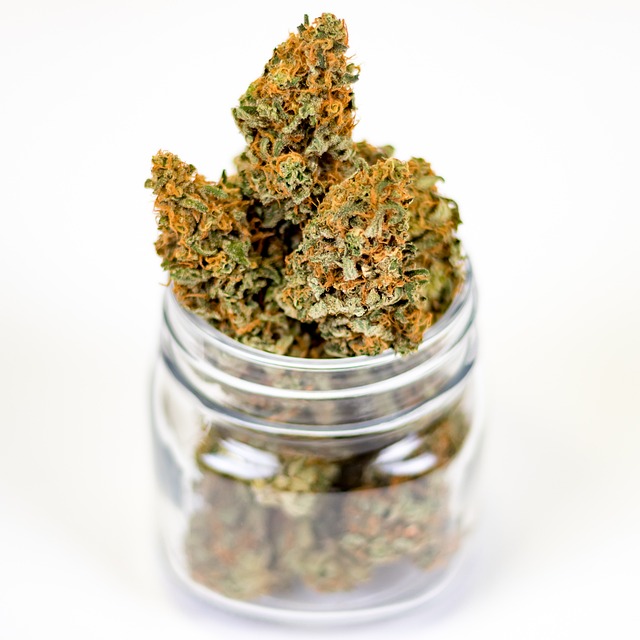The THCA flower, a non-psychoactive compound found in cannabis plants and precursor to THC, has attracted scientific interest due to its antioxidant properties and therapeutic potential. Studies indicate that the THCA flower can combat oxidative stress, which may protect against cellular damage and help mitigate diseases linked to such stress. Its antioxidant capabilities are a key focus in exploring its benefits for health and wellness, with ongoing research suggesting it could be a valuable therapeutic agent due to its multifaceted effects. The THCA flower's potential is further underscored by its ability to modulate reactive oxygen species and act as a free radical scavenger, which not only helps manage inflammation but also supports overall cellular health, making it a promising component in natural health remedies.
Exploring the multifaceted effects of THCA flower, this article delves into its antioxidant properties and potential health benefits. From its chemical makeup to legal considerations and comparisons with other cannabinoids, we’ll provide a comprehensive overview. We’ll also discuss the entourage effect, real-life experiences, and how to safely consume THCA flower while maintaining its freshness and potency. This exploration aims to inform readers about the nuanced impact of THCA flower, focusing on its antioxidant properties as a highlight of its therapeutic potential. Join us as we navigate the complexities surrounding this cannabinoid and its implications for both health and well-being.
- Unraveling THCA Flower: An Overview of Tetrahydrocannabinolic Acid
- The Chemical Composition and Structure of THCA
Unraveling THCA Flower: An Overview of Tetrahydrocannabinolic Acid

Unraveling THCA Flower begins with understanding its chemical composition and potential effects. Tetrahydrocannabinolic acid (THCA) is the non-psychoactive precursor to the well-known psychoactive compound tetrahydrocannabinol (THC). Found abundantly in raw cannabis plants, THCA is gaining attention for its therapeutic properties and antioxidant capabilities. Research indicates that THCA possesses a robust profile of antioxidant properties, which can help combat oxidative stress within the body. These antioxidants are vital in neutralizing free radicals, protecting cells from damage, and potentially preventing a range of diseases associated with oxidative stress. The flower of the cannabis plant, when harvested and cured properly, can retain these beneficial properties, making it a subject of interest for those exploring alternative health treatments. As the scientific community continues to investigate THCA’s effects, its potential as a natural wellness aid becomes increasingly evident, with antioxidant properties standing out as one of its most promising attributes.
The Chemical Composition and Structure of THCA

Delta-9-tetrahydrocannabinolic acid (THCA) is a non-psychoactive precursor to the well-known psychoactive cannabinoid, delta-9-tetrahydrocannabinol (THC). Found naturally in raw cannabis flowers, THCA possesses distinct therapeutic properties and has garnered attention for its potential health benefits. The chemical composition of THCA consists of a phenolic ring system with an oxymethyl group at the RNC position, which differentiates it from its decarboxylated form, THC. This structure is pivotal in determining THCA’s interactions with the endocannabinoid system within the body.
The molecular structure of THCA includes a cyclic ring with a five-membered carbocycyl group and an adjacent thirteen-membered alicyclic ether. This unique configuration contributes to THCA’s antioxidant properties, as evidenced by its ability to modulate reactive oxygen species (ROS). The presence of hydroxyl groups within the molecule enables it to act as a free radical scavenger, offering protection against oxidative stress. These antioxidant properties are not only beneficial in managing inflammation but also play a role in maintaining overall cellular health and potentially preventing disease progression. The comprehensive structure of THCA is a testament to its potential as a therapeutic agent with multifaceted effects, particularly in the realm of natural health and wellness.
In conclusion, the exploration of THCA flower’s antioxidant properties has shed light on its potential health benefits, which may contribute to protective mechanisms within the body. As evidenced by research, THCA’s chemical composition and structure play a pivotal role in its ability to neutralize harmful oxidative stressors, offering a promising area of study for therapeutic applications. While further investigation is necessary to fully understand the scope of its effects, the current findings underscore the significance of THCA flower as a natural compound with antioxidant potential. Users are advised to approach its consumption with caution, considering individual differences in response to such compounds.
